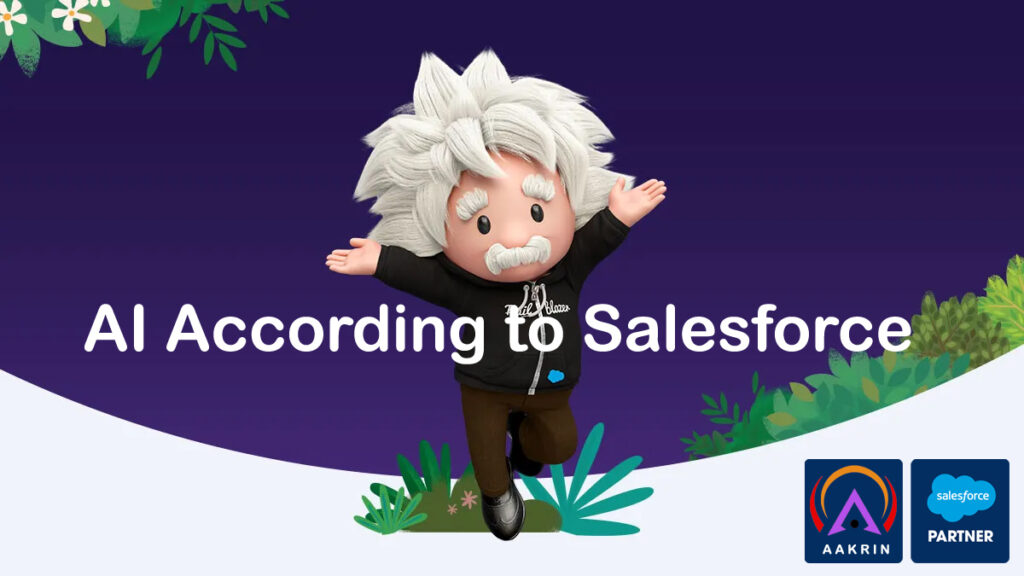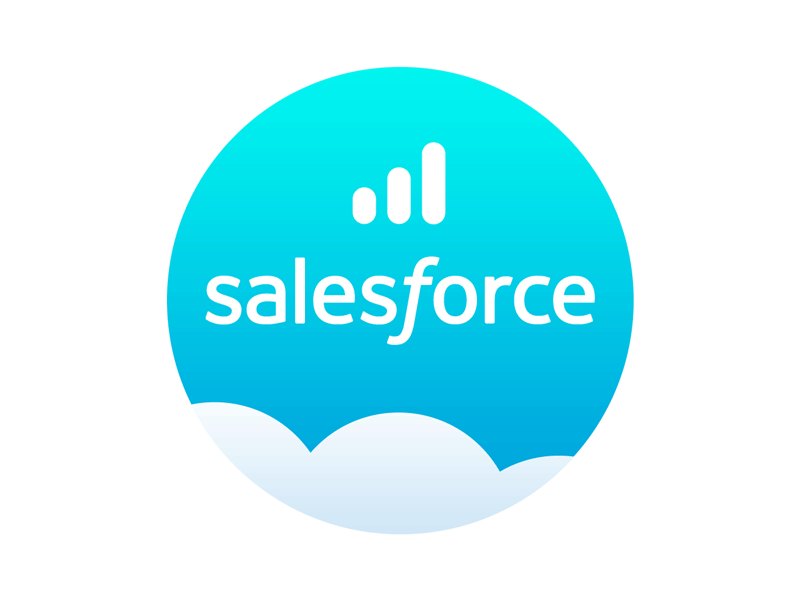
What is Salesforce (and why are its executives predicting the future)?
What is Salesforce? Positioned as the worldwide frontrunner in customer relationship management (CRM), Salesforce plays a pivotal role in facilitating meaningful connections between companies and their customer base. Offering a platform that spans the spectrum of industries and business sizes, Salesforce empowers digital transformation by leveraging the synergies of data, artificial intelligence (AI), CRM, and trust. The objective is to elevate each customer interaction, making it not only personal but also more valuable and unforgettable.
At the forefront of the industry’s dynamism, Salesforce leaders actively engage with the latest trends, technologies, and challenges that shape the business landscape. Armed with insights derived from market analyses and direct customer interactions, they stand ready to illuminate the path toward what the future might hold.
Six predictions show how AI will transform the future of work
People who work at desks think that generative AI will save them about five hours each week. This is a great chance for companies to get more out of their teams’ creativity, strategic thinking, and innovation. Here’s what Salesforce experts believe this will mean for the way we work.
| Point | Summary |
|---|---|
| 1. AI and Productivity Metrics | – Executives currently measure productivity using activity metrics like hours worked. With AI, there will be a shift to measuring outcomes like products launched or leads generated. Leaders need to focus on impact and define clear objectives. |
| 2. AI’s Impact on Work | – AI aims for full autonomy in enterprises to automate mundane tasks. This includes automating standard workflows, such as order processing and post-sales support. AI can free up time for more fulfilling and profitable work. |
| 3. AI and Agent Attrition | – Generative AI can help reduce agent attrition in customer service. Increased self-service and improved agent productivity contribute to lower recruitment costs. |
| 4. Data, AI, and Productivity | – Data silos and information overload waste over 11 hours a week for desk workers. Generative AI will impact how we work and interact with data, starting with AI-powered knowledge retrieval. Long-term effects include task automation and proactive trend and insight surfacing. |
| 5. AI Making the Workplace Smarter | – Chatbots and virtual assistants will simplify the employee experience. AI provides quick responses, guides employees to resources, and facilitates service requests. Proactive engagement predicts the spaces and services employees need before they realize it. |
| 6. Workplace Culture in an AI-driven Renaissance | – Companies need to focus on workplace culture and employee support. Investments in these areas lead to higher satisfaction, better retention, and overall business success. Top talent expects more than just a paycheck from their employers. |

Five ways generative AI will change the future of business
| Point | Summary |
|---|---|
| 1. Full Operationalization of Generative AI | – Generative AI will be used across the entire enterprise, starting with software development, customer service, sales, and marketing. Large language models (LLMs) will go beyond content generation to decision-making and workflow automation. The use of AI Agents will enhance efficiency, creating a continuous cycle of improvement. Companies may utilize a combination of foundational LLMs and smaller, domain-specific language models for various reasons. |
| 2. AI’s Impact on Every Industry | – AI will be integrated into product roadmaps and platforms across industries. It will transform development processes by augmenting coding tasks, boosting productivity, and focusing skills on complex problems. The tech industry and related markets will experience AI’s influence in all aspects. |
| 3. Hypercharged Efficiency with Generative AI | – Advancements in semantic query will revolutionize customer service by providing quick and meaningful, hyper-personalized service with AI. Semantic query will become a cornerstone for AI, facilitating insights from both structured and unstructured datasets. Businesses will adopt semantic query capabilities by merging structured data (e.g., sales figures) with unstructured data (e.g., customer reviews and social media commentary). |
| 4. Customer-Centric Strategies in 2025 | – Companies will shift from “cloud first” and “digital first” strategies to customer-centered approaches by 2025. The focus will be on better business outcomes, with technology seen as the means to carry out processes, not an end in itself. |
| 5. Embracing Generative AI for Future Success | – By 2026, over 80% of enterprises are expected to use generative AI, up from less than 5% in 2023. AI platforms will lead to AI-driven digital assistants across all organizational layers. Businesses failing to adopt generative AI may fall behind, as AI becomes the core of successful businesses, transforming various aspects by 2025. |
Four ways AI will change the future of society
| Point | Summary |
|---|---|
| 1. AI for Social Impact | – AI provides a significant opportunity for purpose-driven organizations to better serve communities. <br>- However, many resource-constrained organizations lack the funding and expertise required for AI adoption. <br>- The philanthropic community needs to focus on ensuring equitable access to AI for nonprofits addressing social and environmental challenges. |
| 2. Transformative Impact on Healthcare | – Generative AI is predicted to bring about a transformative change in healthcare. <br>- The U.S. spends $3.7 trillion on healthcare, with $1 trillion considered as administrative waste. <br>- Generative AI will create efficiencies in claim management, turn unstructured data into insights, predict at-risk patients, and establish new diagnosis and prevention methods. |
| 3. AI’s Role in Fighting Climate Change | – AI-powered solutions offer promise in addressing climate change challenges. <br>- WeaveGrid uses machine learning to optimize EV charging for utilities, automakers, and drivers. <br>- Pano AI employs AI to detect wildfires earlier, contributing to climate change mitigation and adaptation. |
| 4. AI in Sustainability Reporting | – Sustainability reporting standards are expected to become more rigorous globally. <br>- New climate-related reporting requirements, such as SB 253 in California, the SEC climate disclosure rule, and the EU’s Corporate Sustainability Reporting Directive, will necessitate compliance. <br>- AI will play a crucial role in helping businesses meet these standards while easing the burden of sustainability reporting. |

Analytics Cloud App Cloud Automated Customer Service Automated Onboarding Commerce Cloud CRM Education Cloud Experience Cloud Financial Cloud Government Cloud Health Cloud Integration Cloud IOT Cloud Manufacturing Cloud Marketing cloud NGO Non Profit Cloud Safety Cloud Sales Cloud Salesforce cloud Salesforce Salesforce Analytics Cloud Salesforce App Cloud Salesforce cloud Salesforce Commerce Cloud Salesforce Editions Salesforce Education Cloud Salesforce Experience Cloud Salesforce Financial Cloud Salesforce Government Cloud Salesforce Health Cloud Salesforce Integration Cloud Salesforce IOT Cloud Salesforce Manufacturing Cloud Salesforce Marketing cloud Salesforce Non Profit Cloud Salesforce related Salesforce Safety Cloud Salesforce Sales Cloud Salesforce Service Cloud Salesforce Testing salesforce ux designers salesforce versions Service Cloud Testing UX designers

